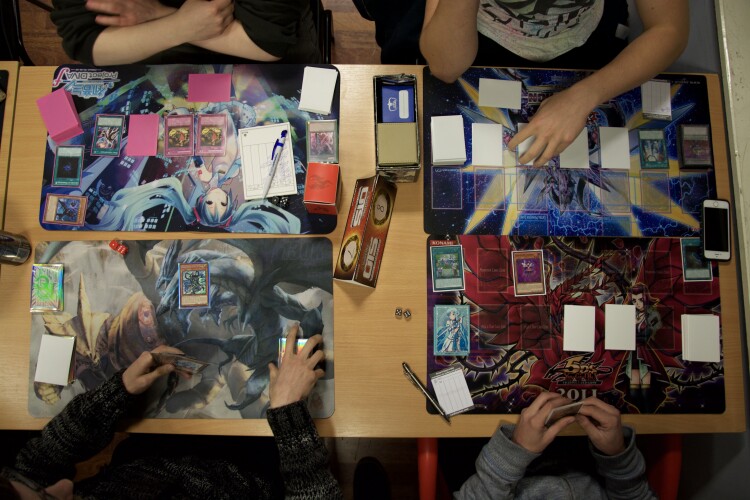Major Project Print JOUR4001
Originally a children’s card game, Yu-Gi-Oh! trading card game (TCG) has changed a lot since its launch in Japan, just before the turn of the millennium. The TCG has always been incredibly popular, with Guinness World Records naming it the top selling TCG in history, with more than 35 billion cards sold worldwide, as of 2021.
As reported in parent company Konami’s latest financial statement, Yu-Gi- Oh! continues to perform strongly on a global scale. This comes as the card game continues to celebrate its 25th anniversary this year.
However, not all the news is good in the Yu-Gi-Oh! world. Something now widely discussed in the inner circles of the Yu-Gi-Oh! player base is how ADHD medication Adderall is being used by players to improve performance in the game’s larger tournaments.
Adderall’s primary medical function is to treat people with ADHD and narcolepsy, but it has also been used as an athletic performance enhancer, cognitive enhancer, appetite suppressant and as a recreational euphoriant.
When speaking about the issue, Joseph Rothschild – a Yu-Gi- Oh! content creator with over 200,000 subscribers on YouTube – had mixed feelings about the topic. He stated that: “Here’s a thing [Adderall] that’s completely unpoliceable, has a definite, noticeable impact on your play and is laughably easy to procure. Are you going to do it? Your call.
“Obviously, I personally don’t, but I can say confidently somewhere in like the 90% range of professional Yu-Gi-Oh! players use performance enhancing drugs. I’ve had a half-dozen people describe, in detail, how to procure an ADHD diagnosis. Not hard. It’s completely normalised,” he said.
“Is it a problem? I don’t really come down hard on it,” Rothschild said.
But, this appears to be an issue mainly among the North American player base. People in Ireland and across Europe say that they don’t know of anyone using Adderall or similar drugs in tournaments.
Herman Hansson, a threetime Swedish National Champion and 2019 World Championship quarterfinalist, thinks the issue is overstated. He believes that: “The percentage of Yu-Gi-Oh! players in Europe taking Adderall I would say is 0. And in North America maybe five percent, but even that might still be high.”
When presented with Mr. Rothschild’s opinion about professional player usage he said that: “It’s definitely lower than 90%.”
Regardless of who you believe, it is evident that some players of the card game are willing to go to extreme lengths to win. Can winning really be worth all the ethical and side-effect issues involved? Some players seem to think so.
